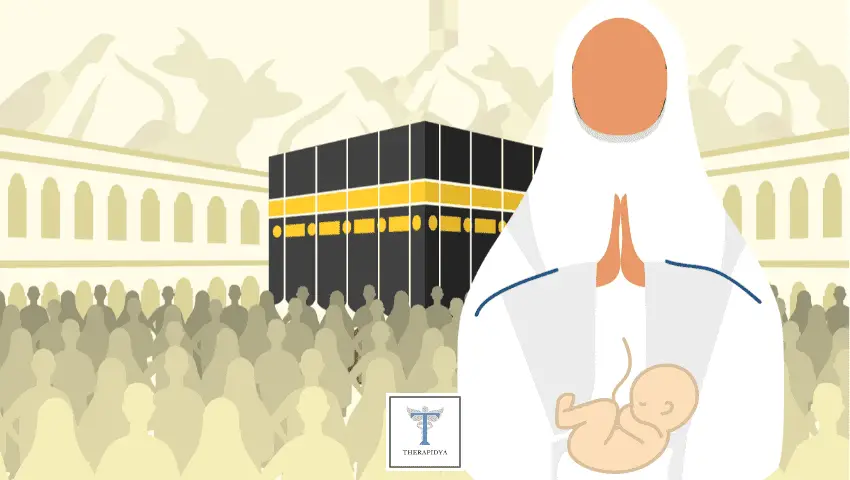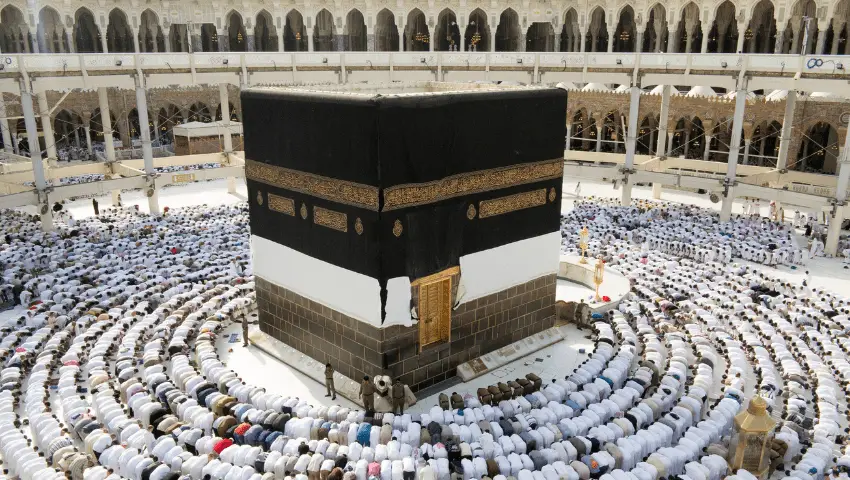Pregnancy and Hajj: Everything You Need the Know .. 2023
Pregnancy and Hajj have created a question mark in the minds of some people. Hajj brings together different groups of people from women, men, pregnant women and even children, so they all go to perform the Hajj. Since Hajj is stressful and carries with it many hardships, we have dedicated this article to talk about pregnancy and Hajj.
Pregnancy itself is a tiring phase of a woman’s life, so what if it is accompanied by going to Hajj? Of course, it will be stressful for her and may be dangerous at times, and to get to know the aspects of the issue more, we must clarify a number of different things about pregnancy and Hajj through the following article.

Why is It Advised to Postpone Hajj?
Not all pregnant women will be able to go to Hajj, and it is certain that this decision must be taken by consulting the doctor and taking his advice, advice and necessary instructions, according to the Saudi obstetrics and gynecology consultant, Hafiza Turkestani, in a statement published on the Saudi Ministry of Health website.
However, according to the advice of the Saudi Ministry of Health regarding pregnancy and Hajj, the pregnant woman must postpone the Hajj in the following cases:
- Having a history of preterm birth.
- Women suffering from previous miscarriages.
- Having gestational diabetes.
- Heart disease, high blood pressure, and other health diseases.
Also read: Online shopping Saudi Arabia
With regard to pregnancy and Hajj, pregnant women are usually advised to postpone the Hajj rituals for several reasons, including:
- Avoiding any complications such as infections or even infection, at this stage her immunity is somewhat low, which exposes her to infection with infectious diseases more.
- The possibility of a pregnant woman getting heat stroke during the Hajj, which puts her at great risk.
- An opportunity to experience mental and physical weariness. Pilgrims are required to walk significant distances throughout the Hajj, which can cause a woman who is pregnant to experience lower abdominal cramping in addition to back pain.
- The possibility of injury to her and the fetus due to overcrowding and exposure to physical injuries resulting from the stampede.
- Because of the strenuous activity and the high temperature, there is a chance that you will become dehydrated if you don’t drink enough water to keep yourself adequately hydrated.
Also read: Pregnancy Category

Tips and Guidelines During the Hajj
In the event that the pregnant woman goes to Hajj after consulting and agreeing with the doctor, this step will entail many instructions and advice in order to preserve her safety and the safety of the fetus, including:
- Make sure that all of the medication is taken, and that it is taken at the appropriate time.
- Take the necessary vaccinations before heading to Hajj and are suitable for pregnant women, especially meningitis and seasonal influenza.
- Be sure to wear clothes that are loose and comfortable, as well as shoes that are appropriate.
- Drink sufficient amounts of water and fluids and do not neglect this matter.
- Avoid crowded and crowded places.
- Not to do any excessive physical exertion and to use a wheelchair when needed during the Tawaf and Sa’y.
- To prevent venous thrombosis in the legs, you should get up and walk around every hour or two.
- Go to the nearest medical center when you feel any of the following symptoms:
- Severe headache.
- Vomit frequently.
- Blurring in the eyes .
- The presence of vaginal blood.
- Staying out in the sun for an extended period of time should be avoided.
- In order to be able to follow up on her health condition and preserve both her health and the health of her fetus, you should take a picture that is an exact replica of the pregnancy follow-up that is given by the doctor in her country who follows up on her condition.
This post is also available in: Dansk (Danish) Nederlands (Dutch) Français (French) Deutsch (German) עברית (Hebrew) Italiano (Italian) Polski (Polish) Română (Romanian) Русский (Russian) Türkçe (Turkish) Español (Spanish) Български (Bulgarian)





